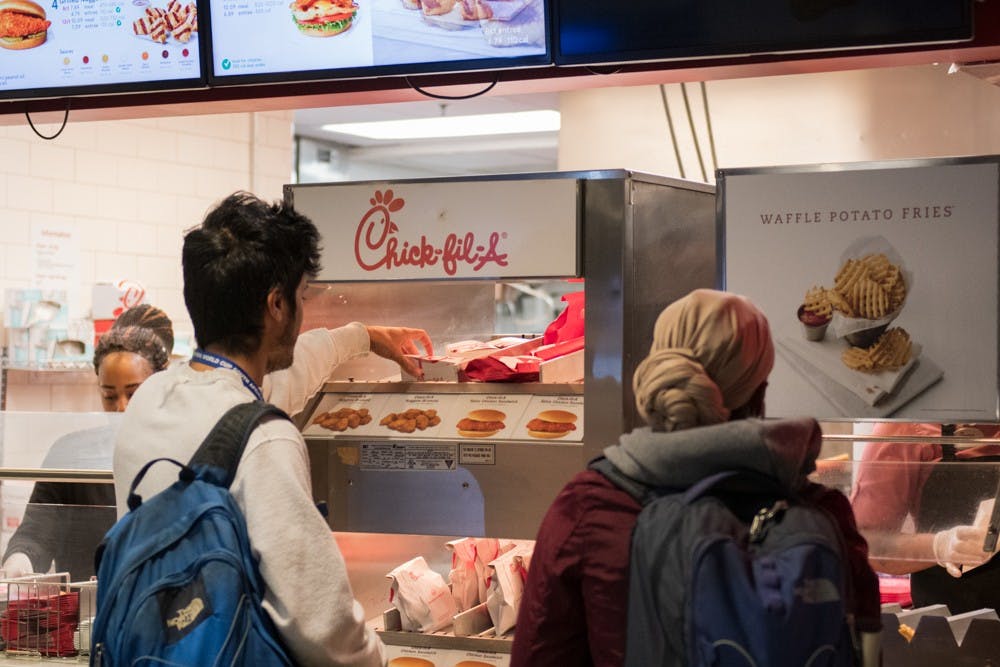When you’re eating in a rush on-campus, picking up a quick bite to eat from Chick-fil-A in the Bottom of Lenoir is easy and favored by many UNC students. But for some, the fast-food chain's long history of donations to anti-LGBTQ groups and evangelical organizations is enough to deter them from the chain's waffle fries and chicken sandwiches.
After facing backlash from LGBTQ+ activists, Chick-fil-A announced on Monday, Nov. 18, that the company would cease donations to two faith-based organizations, the Salvation Army and the Fellowship of Christian Athletes. The two groups have been criticized for opposing LBGTQ+ rights, including same-sex marriage.
Chick-fil-A has faced criticism for the conservative views of its leadership since 2012, after CEO Dan Cathy made comments opposing same-sex marriage.
Professor Jeffrey Edwards uses the controversy surrounding the restaurant as an example while teaching his ethical leadership class in the Kenan-Flagler Business School.
“I use Chick-fil-A as an example for us to talk about, in a class where one of four issues that we talk about has to do with gay marriage and tolerance of LGBTQ people in the workplace,” Edwards said.
In the most recent decision made by the company, Edwards said it can be looked at from three ethical points of view: outcomes, nature of the actions and virtues.
“One of them has to do with the outcomes — it’s called the utilitarian approach, which essentially is who is benefiting and who is being harmed by decisions like this, it could be employees or customers,” Edwards said.
The second point of view examines the nature of the actions themselves, Edwards said, regardless of the effects that they produce. The third point of view is virtue ethics, which takes into account what a person considers their own personal values.
"So, Cathy would be the person in question here," Edwards said. "So you think about ethically, withdrawing reward from these charitable organizations, are there winners and losers?"



